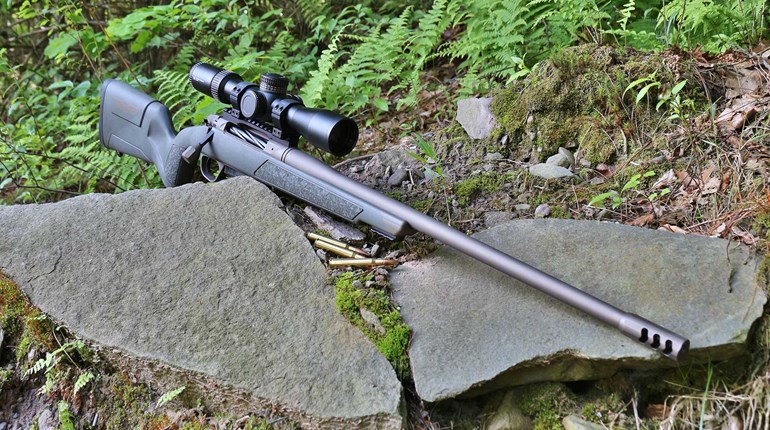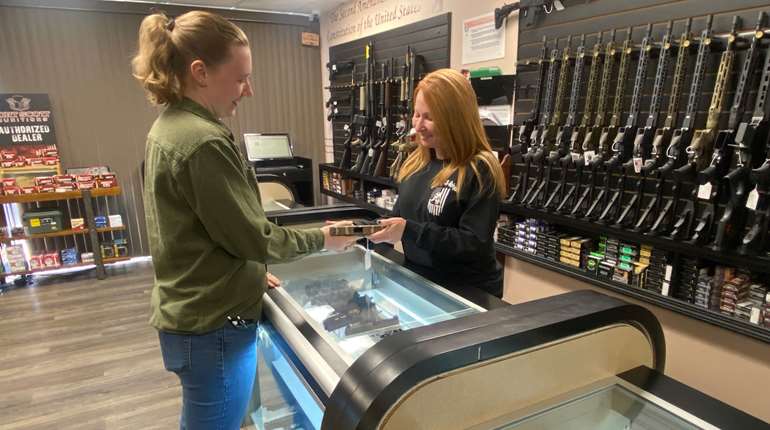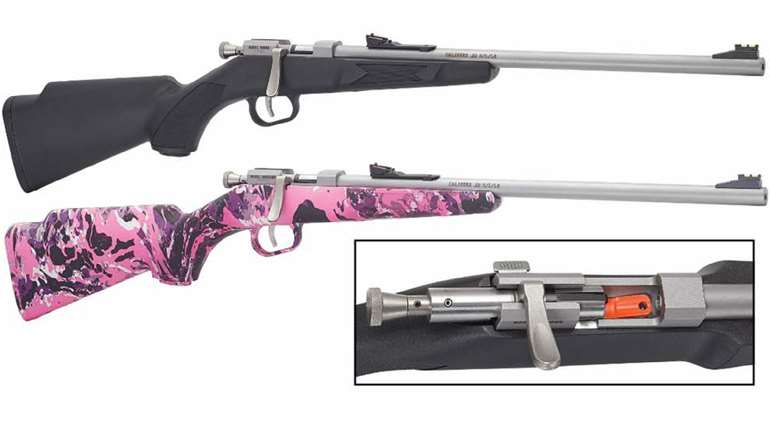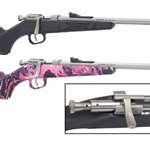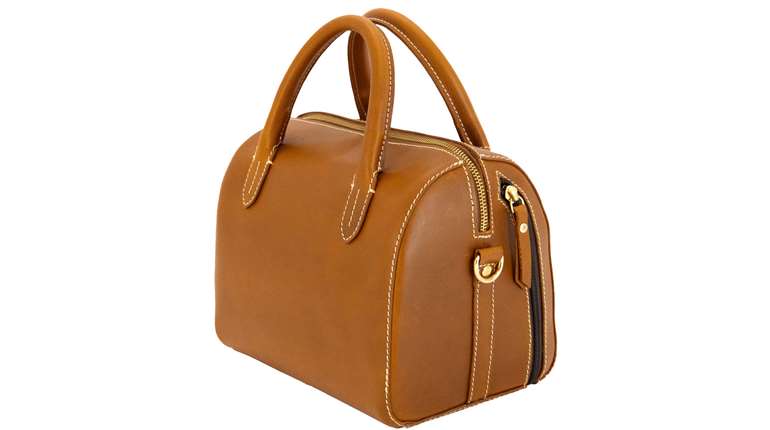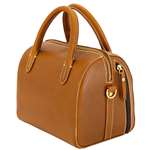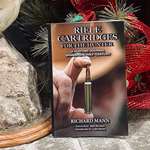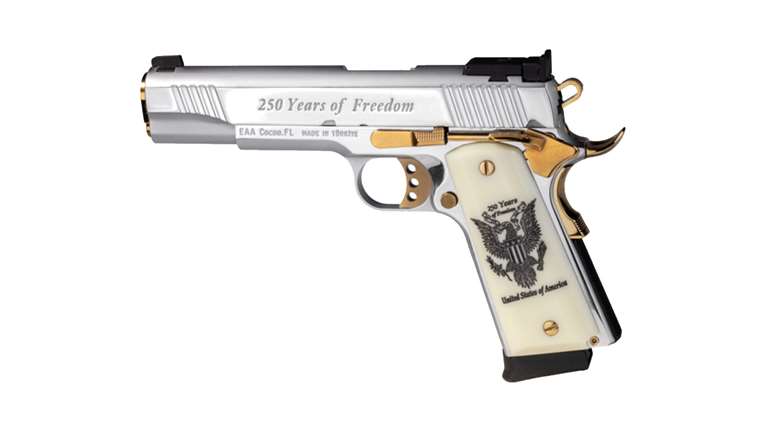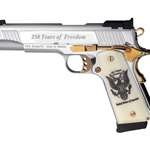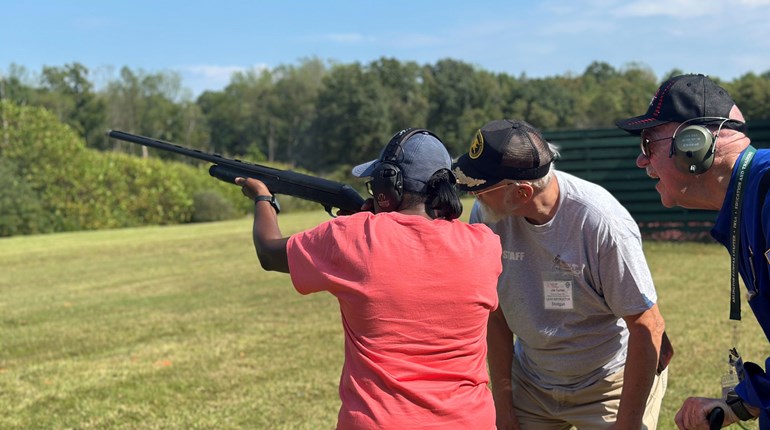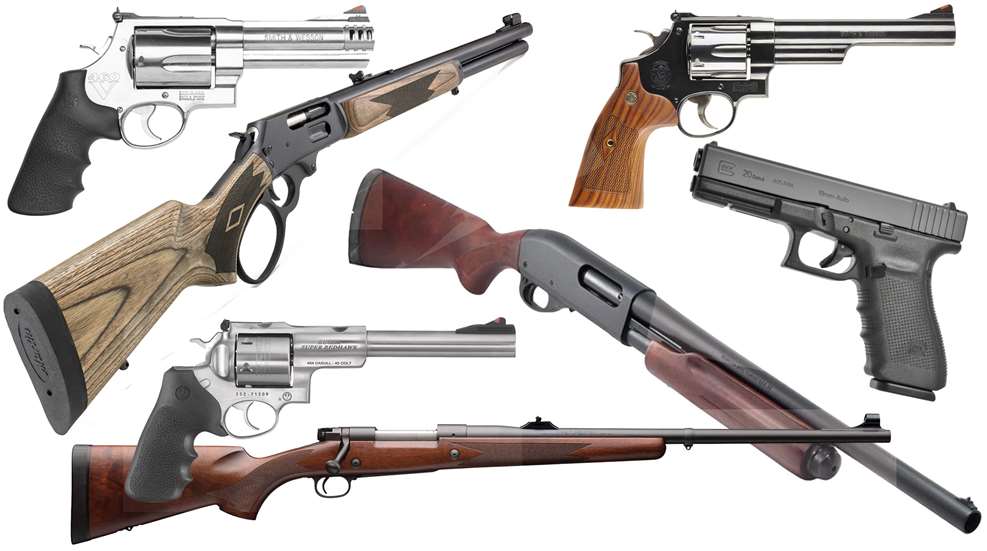
Hunting guides have very diverse job descriptions. They are trackers, skinners, butchers, cooks, horse wranglers and good listeners. Above all, a hunting guide is responsible for the safety of his or her clients. There are many factors that put hunting guides and hunters’ lives in peril. Rugged terrain, inclement weather, and dangerous animals are all factors for which hunting guides must plan.
Many guides carry firearms for protection for their clients and themselves when hunting in the backwoods where large wildlife predators roam. That is great if you hire a guide. But what if you are hunting, camping, or hiking on your own? You need to be prepared for your own protection and defense against large wildlife predators. Guides use many tools for protection that are also available to the public. These include handguns, rifles and shotguns.
Handguns
Handguns are the most common firearm that outfitters and guides carry for protection. This is because a handgun in a holster is always within reach of the guide, easy to access and deploy, and ideal for close encounters with large wildlife predators. Many times, a bear or other large wildlife predators is on top of a guide or client before they know what is going on. It is amazing how a large wildlife predator, some upwards of 2,000 lbs., can silently move through the surrounding brush without notice until they are within ambush range.
When a large predator ambushes prey, the unlucky victim usually does not have time to react. Having a handgun on your side at least gives you a fighting chance. An individual being attacked has a better chance of survival if they have access to a firearm. It does not matter if the person being attacked is standing, on their knees, or knocked to the ground with a predator on top of them; he or she should be able to access their handgun if it is on their belt or chest holster.
Many attacks occur while the guide and clients are skinning out their game. Both individuals are preoccupied with the task at hand and unaware that they are being stalked. Additionally, the client’s gun is usually unloaded and out of reach. There have been many mauling’s and fatalities of guides and clients under this exact scenario.
The following are common handguns that guides carry for the protection of their clients and themselves.
Smith & Wesson Model 629
The Smith & Wesson Model 629 .44 Rem. revolver is probably the most common big bore revolver you will encounter in the backcountry. This model is sleeker and lighter than other .44 Rem makes, and they are very reliable and dependable. If you are using extremely high-pressure ammunition such as Buffalo Bore (Buffalobore.com) hard cast ammunition, make sure you get rounds that can be shot out of this handgun. Although the Model 629 cannot take the pressures other .44 Rem revolvers can, it is extremely comfortable to carry.
The .44 Rem is the lightest caliber that should be carried in bear country. This caliber is more than adequate to take down a bear or any other predator, but larger is better. The Smith & Wesson Model 629, .44 Rem is a stainless-steel revolver and comes in barrel lengths between 4” and 8“ and weight approximately 49 ozs. (unloaded).
Ruger Super Redhawk, Ruger Super Redhawk Alaskan
Many guides prefer Ruger Super Redhawk and the Super Redhawk Alaskan revolvers for protection. This is because the Ruger firearm can take ammunition with higher pressures than other makes. The reason these stainless-steel revolvers are so strong is because the frame is extended and has extra metal in the top strap, frame sidewalls, and barrel mounting areas to handle the most powerful loads available.
The preferred caliber in the Ruger Super Redhawk and Super Redhawk Alaskan models is .454 Casull and .480 Ruger. These are some very punishing rounds as far as recoil is concerned, especially in the Super Redhawk Alaskan. The Super Redhawk is available with a 7.5” barrel weighing 52 oz. and a 5” barrel weighing 47 oz. The Super Redhawk Alaskan model only comes in a 2.5” barrel and weighs 44 oz. (unloaded).
Smith & Wesson X-Frame
Smith & Wesson X-Frame revolvers are at the top of the food chain as far as large bore handguns are concerned. These revolvers are very large and very heavy but have a very manageable recoil. This is because of the combination of weight and the barrel compensator at the muzzle. The X-Frame revolver is the missing link between handguns and long-guns. They are not as easy to carry as other large frame revolvers but are more easily kept accessible because they can be carried in a holster.
The Smith & Wesson X-Frame comes in .460 S&W and .500 S&W. These magnum rounds can take down any predator or game animal in the world. The X-Frame comes in every size from a concealable 3.5" barrel to a 14" barrel that a bipod can be attached to. The most common barrel length guides carry are 4”, 5” or a 6” gun and weigh from 55 oz. to 60 oz. (unloaded).
Glock 20
Some guides prefer the Glock 20, 10 mm semi-automatic pistol for protection. Many consider this caliber as “enough gun” in grizzly country. The Glock 20 is a lightweight gun that holds 15 rounds of ammunition. That means it is very easy to carry and deploy. It also has a large ammunition capacity—15 rounds compared to the 5- or 6-round cylinder capacity of a revolver. The large magazine capacity is useful for follow-up shots and if there are multiple predators such as a sow bear and cubs (grizzly bear cubs can weigh several hundred pounds).
The Glock 20 is a 10 mm caliber polymer semi-automatic pistol. The Glock 20 has a 4.61” barrel weighing less than 31 oz. (unloaded).
Rifles
Marlin Guide Gun
The Marlin Model 1895 Guide Gun is a firearm specifically for guides or anyone who is looking for a gun for protection against large wildlife predators. This gun is a lever action carbine chambered in .45-70 Govt. It is short and easy to swing on a target. The short length is ideal for protection, especially in timber or brush. The overall length of the 1895 Guide Gun is 37.25” long with a barrel length of 19.1”. The rifle weighs 7.4 lbs. with a magazine capacity of 6 .45-70 Govt. rounds. With one in the chamber, this firearm can hold 7 cartridges.
Winchester Model 70 Safari
The Winchester Model 70 Safari Express is carried by some guides in Alaska where large brown bears are present. The preferred calibers are the awesome, .375 H&H, .416 Rem, and the .458 Win for protection. These guns are long, heavy, and can be cumbersome for protection against an attack, unless you are in open areas such as in Alaska. The overall length of this rifle is 44.75” with a 24” barrel. The rifle weighs 9 lbs. and can hold 6 cartridges with one in the chamber.
Shotguns
Remington 870
The Remington 870 12-gauge was the most common shotgun used by guides. With that said, there are not as many shotguns carried by guides for protection compared to handguns and rifles. The overall length of this shotgun is 38.5" with a barrel length of 18.5”. The standard Remington 870 has a capacity of 5 shells with one in the chamber. Today we have a choice of many tactical shotguns with different shotshell capacities.
This shotgun loaded with slugs is a very effective tool for stopping a large wildlife predator. Alaskan official suggests individuals traveling in the backcountry can a 12-gauge shotgun loaded with slugs. It was also the gun of choice by the best-selling author and African Professional Hunter Peter Capstick when entering the long grass when tracking a wounded lion or leopard.
It just takes a split second for an enjoyable activity to turn into a tragedy. Imagine being in the backcountry and you get that sixth sense feeling when the hair on the back of your neck rises because you feel something is watching you. Now imagine you are unarmed! Make sure you have the right firearm to ensure that you return home safe and sound instead of finding out the hard way that you are not at the top of the food chain!















